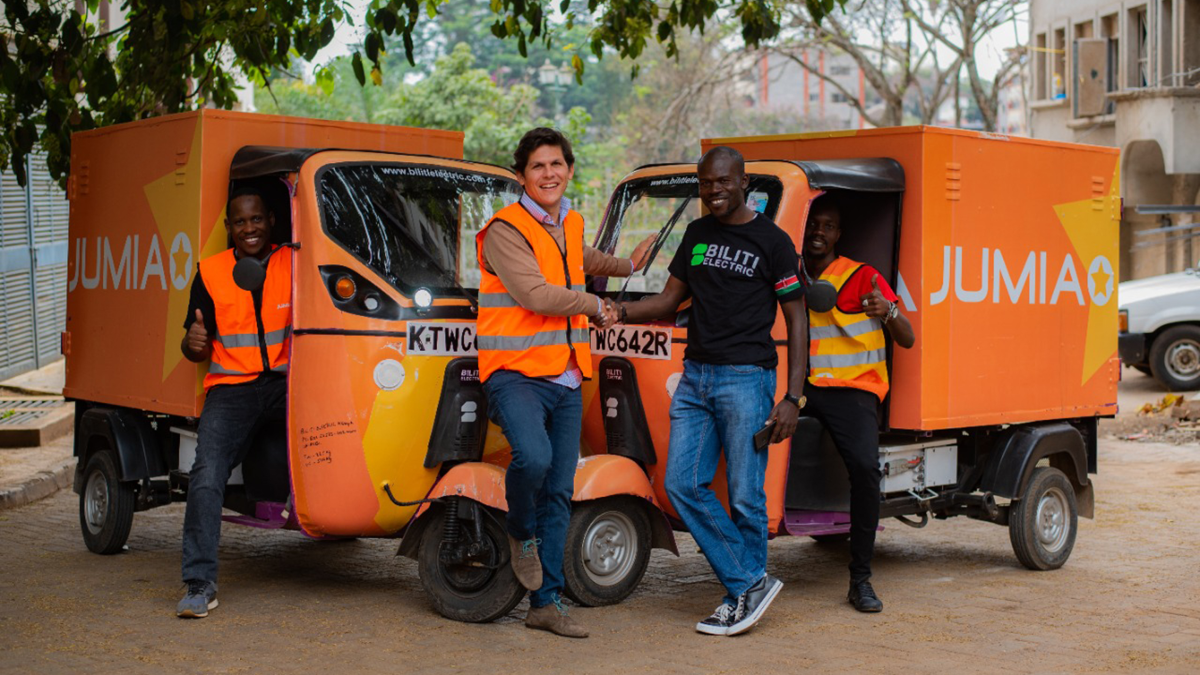Jumia to Use Biliti's Electric Three-Wheeler for Deliveries

Africa-based e-commerce company Jumia and California-based EV solutions provider Biliti Electric have announced that they will work together to add electric vans to Jumia's delivery fleet in Kenya.
According to the companies, the pilot project was a success, and they plan to scale the fleet within Kenya in the first phase and eventually across Africa.
The Taskman model, designed for commercial last-mile deliveries, will be supplied by Biliti Electric; it has a range of 100km per charge, a payload of 500kg, and a top speed of 50kph. The rider may easily switch the vehicle battery using Biliti's SmartSwapp technology.
The company says it has seen a collective mileage of 22 million miles (35 million kilometres) and delivered 24 million shipments across the globe.
The company counts the likes of Amazon, IKEA, Flipkart (Walmart), Wasoko (Sokowatch), BigBasket, Zomato, and JioMart (Reliance), among others.
It is present in more than 15 countries, including Japan, the United States, the United Kingdom, France, Portugal, Germany, Uganda, Kenya, Dubai, and India.
Juan Seco, CEO, Jumia Kenya, said:
“Leveraging technology to improve everyday lives in Africa is the first pillar of Jumia’s sustainability strategy. We are committed to building a supply chain that will minimise the environmental impact of our operations. The introduction of these EVs to our last-mile delivery fleet of more than 3,000 vans is an integral milestone in our journey towards realising our ESG objectives.”
Rahul Gayam, Co-Founder and Co-CEO of Biliti Electric, said:
“We are thrilled about this partnership as Jumia is a growing entity on its path to profitability. Last-mile delivery costs account for 53% of the total cost of shipping. EVs help save on major costs compared to any internal combustion engine vehicle. We are confident of enabling Jumia with much faster, cheaper, and more convenient last-mile deliveries.”
In 2020, renewables such as hydropower, geothermal, solar PV, and wind generated approximately 92% of the country's electricity. Kenya aims to use 100% sustainable energy by 2030.
Source: Express Mobility

